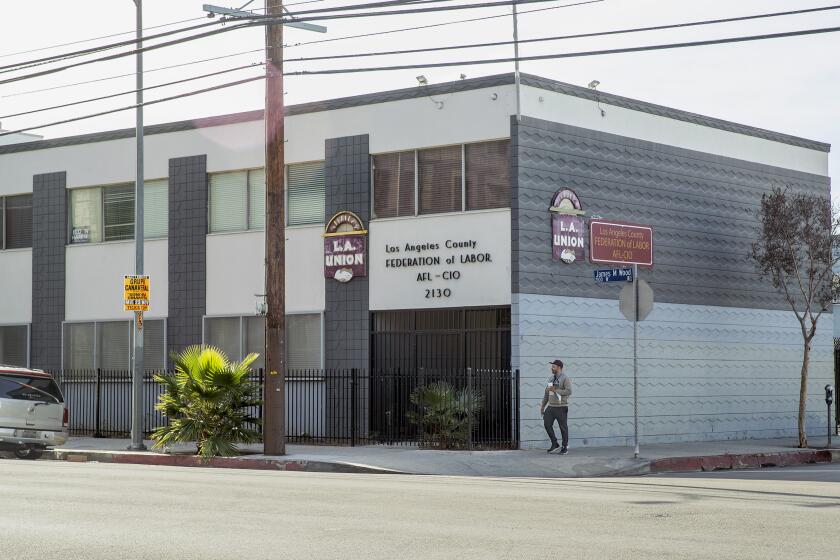State Justices Plug Potential Lease Loophole in Prop. 13
The state Supreme Court plugged a potential business loophole in Proposition 13 Thursday, ruling that property must be reassessed at full value when sold even if the seller keeps a long-term lease.
The unanimous decision lets Los Angeles city and county keep $10 million in property taxes from the reassessment of the downtown Security Pacific Bank building after its sale in 1984. The ruling prevents other businesses from using sale-leasebacks to freeze tax assessments on commercial property.
“It would have been a horrible loophole if they went the other way,” said Albert Ramseyer, a deputy Los Angeles County counsel.
Selling a building and leasing it back has legitimate non-tax purposes, such as removing a bank’s capital from real estate and making it available for loans, said Deputy Atty. Gen. C.J. Rehm, the state’s lawyer in the case.
But if the court had ordered a refund in this case, “by adding a few magic words to their deed, (sellers) could have avoided change-of-ownership consequences” and reassessment under Proposition 13, said Richard Ochsner, assistant chief counsel to the state Board of Equalization, which oversees local property taxes.
A lawyer for Pacific Southwest Realty Co., the Security Pacific affiliate that sought the tax refund, referred inquiries to bank representatives, who did not return calls for comment.
The ruling is a small consolation for local governments, a week after the same court prevented them from raising sales taxes by a majority vote for jails, transit and other projects because of a two-thirds vote requirement in Proposition 13.
The two cases also showed that parts of Proposition 13 are still being deciphered 13 1/2 years after passage of the initiative that slashed property taxes and impeded tax increases.
The U.S. Supreme Court is due to rule by next July on one of Proposition 13’s basic provisions, which limited property assessments to 1975-76 levels, plus increases of 2% a year, but allowed reassessment at full market value when a property was sold. The resulting wide differences in taxes of identical properties sold at different times are being challenged by a homeowner as unconstitutionally discriminatory.
That reassessment rule was also the subject of Thursday’s case, which involved the September, 1984, sale of Security Pacific Plaza by Pacific Southwest Realty to Metropolitan Life Insurance Co. for $310 million. Pacific Southwest gave up title to the building but kept long-term leases on the two towers that made up 73% of the property.
More to Read
Start your day right
Sign up for Essential California for news, features and recommendations from the L.A. Times and beyond in your inbox six days a week.
You may occasionally receive promotional content from the Los Angeles Times.






